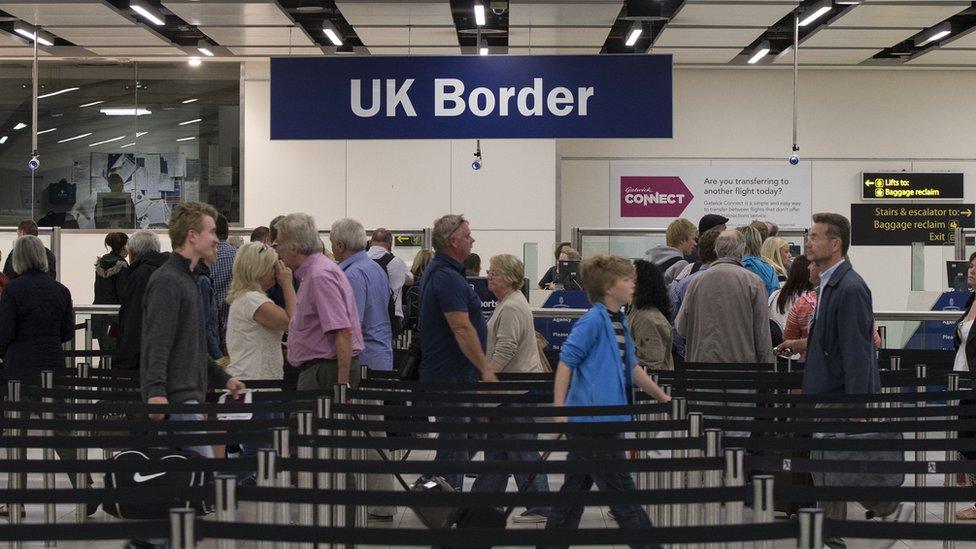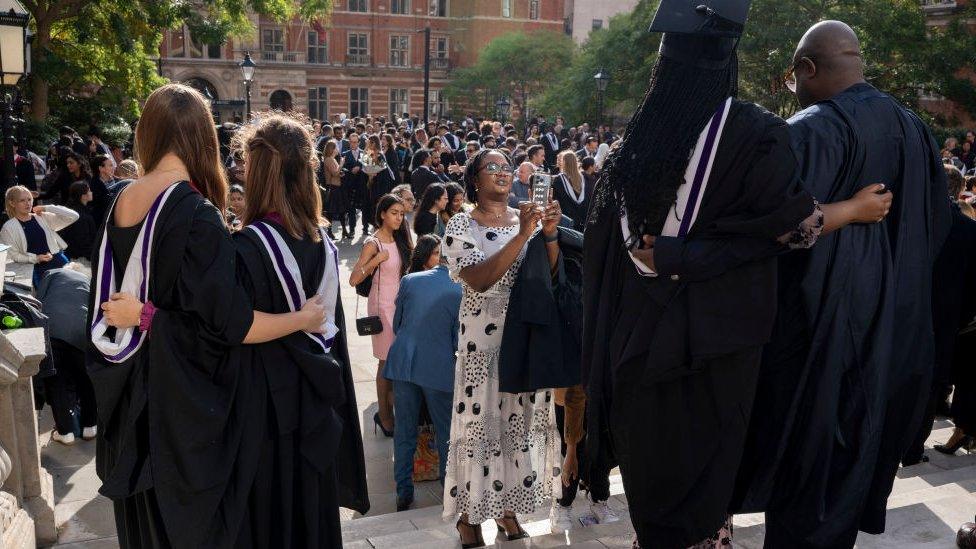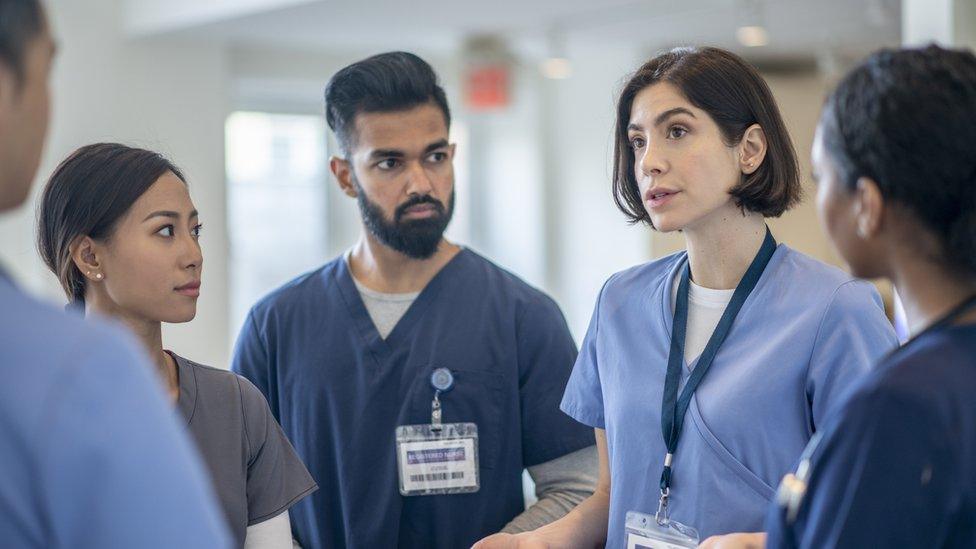Chris Mason: Ministers weigh up tricky options on immigration
- Published

Ministers are trying to work out what to do about immigration, and quickly.
Next week, the latest migration statistics will be published for 2022.
Net migration - those arriving minus those leaving - is expected to be at a record high.
"It'll be a challenging number," one government figure acknowledges to me, with understatement.
In the year to June 2022, net migration was just over half a million people. Next week's number is expected to be bigger.
There are so many questions for ministers to weigh up.
How high is too high? How do you wrestle with the trade-offs - for the economy, public services, communities, society?
And how do you justify your decisions, when you can't blame anyone else?
One of the consequences of Brexit is that immigration policy is now entirely down to the government at Westminster.
They can't blame the European Union any more.
Opposition parties have nowhere to hide either: Labour's immigration policies will be keenly scrutinised too.
Broken manifesto promises
The political backdrop is stark. In four consecutive Conservative election manifestos, big promises have been made on immigration - and four times they have been broken.
David Cameron in 2010 and 2015, and Theresa May in 2017 promised to get net migration down to the tens of thousands a year. Neither managed it, or ever got that close.
Boris Johnson in 2019 promised to get the number falling.
Granted, it did, briefly, during the pandemic - but it has since rocketed.
So what are ministers now considering?
Take agriculture. The Home Secretary, Suella Braverman, has said the UK should train its own fruit pickers.
The prime minister told Farming Today on Radio 4 the government was willing to expand the number of seasonal visas for agricultural workers.
Then, there is education.
International students are proudly welcomed by the UK: they bring in billions of pounds, help subsidise tuition fees for British students, and some in government argue, are crucial for the UK's soft power - leaving hundreds of thousands of young people with a lasting affection for Britain.
So, there are some in government pretty sceptical about limitations here. One source said to me that 55 current world leaders were educated in the UK, and this is an influence to cherish.
Masters students
So ministers, including the home secretary, chancellor and education secretary, have been discussing what to do about it.
It appears there is agreement to prevent those doing Masters degrees, which usually take around nine months, from bringing dependents with them.
Discussion is ongoing about whether the restriction could be broader than that.
But there is a resistance for it to include, for instance, PhD students, who tend to study for several years and whose qualifications and skills are more highly sought after in the jobs market afterwards.
There has also been discussion about whether particular courses or universities could be valued more highly than others.
But if you prioritise a particular course, you might incentivise poor providers to bump up supply.
And if you prioritise institutions, on what basis do you rank them?
Dilemmas abound.
Enter next, the Chancellor Jeremy Hunt, attempting to square the circle, for now at least, and without much detail.
He argued that Brexit was "a decision to change our economic model" and move away from "low skilled foreign labour".
But, Mr Hunt added, the government would be "sensible and pragmatic" as he put it about immigration requirements "where there are particular shortages".
One final thought: to how many people is high immigration a problem?
There is some polling evidence, external to suggest that since Brexit, the issue matters less to some people. And some want immigration to be higher.
It is a mighty tricky policy issue for governments to get right - as the next week or so will illustrate.
Related topics
- Published25 November 2022

